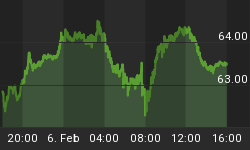March with the gap between open jobs and available workers reaching 5.6 million.
The Labor Department reported in its Job Openings and Labor Turnover Survey for March, 4.5 million Americans, or about 3% of the nation’s workforce, quit their jobs in favor of better wages and working conditions.
During the same period, the number of job openings rose to 11.5 million, an increase of 152,000 from the previous month. Economists were looking for job openings to decline to 11.2 million in March.
The job openings significantly increased among retail trade employers, with vacancies up 155,000 month-on-month, while manufacturing industries saw vacancies rise by 50,000 in March. However, transportation and warehousing decreased by 69,000 and by 43,000 in state and local government education.
Chronic labor shortages have caused an increase in wages, with average hourly earnings up 5.6% from last March. Despite the rise in wages at rates well above pre-pandemic trends for months now, they have failed to keep pace with the rise in consumer price inflation, which is being exacerbated by soaring energy prices, particularly for diesel fuel.
The inflation has increased 8.5% for the year ended March 2022—the biggest jump in 40 years.
The Labor Department reported last week that the U.S. employment cost index, a measure of how much employers pay for their workers' wages and benefits, increased 1.4% in the first three months of 2022, up from a 1% gain in the last quarter of 2021.
Compared with a year earlier, the labor costs measure jumped 4.5%, the most in more than two decades.
The Labor Department report on job openings came as economists were expecting an important April nonfarm payrolls report. Dow Jones expects an increase of 400,000 jobs and a decline in the unemployment rate to 3.5%.
However, according to the ADP National Employment Report, the U.S. companies added only 247,000 jobs last month in a wide miss on expectations. The government's data is scheduled to be released on Friday but economists are not expecting it to differ from the ADP data.
In March, nonfarm payrolls grew by 431,000, a bit below the 490,000 estimates and far below February's upwardly revised number of 750,000.
“In April, the labor market recovery showed signs of slowing as the economy approaches full employment… As the labor market tightens, small companies, with fewer than 50 employees, struggle with competition for wages amid increased costs,” Nela Richardson, chief economist at ADP was quoted as saying in the report.
According to the data, which represents 460,000 U.S. clients employing nearly 26 million workers in the U.S, companies with fewer than 50 workers saw payrolls plunge by 120,000 last month, while companies employing 500 or more workers fared somewhat better. Still, the overall monthly gain was the smallest since last August.
As in previous months, the services sector, particularly in leisure and hospitality, professional and business services and education and health, saw the most job growth in March.
The service-providing sector added 202,000 jobs, driven by the leisure and hospitality business, with 77,000 jobs, and the professional/business services sector, with 50,000 jobs.
















